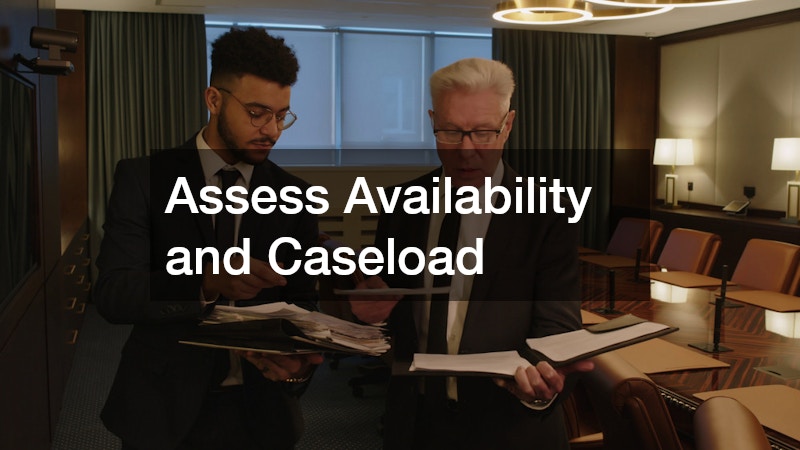When life throws you a curveball—whether it’s a contract dispute, car accident, or child custody battle—finding the right lawyer can make all the difference. Legal matters are often complicated, emotionally charged, and high-stakes. That’s why having a skilled, trustworthy lawyer on your side is one of the smartest decisions you can make.
But with so many options available, how do you choose the right lawyer for your specific legal needs?
In this guide, we’ll break down the most important factors to consider when hiring a lawyer, the types of legal specialties that may apply to your situation, and why doing your homework is crucial. We’ll also highlight real-life scenarios—from real estate issues to personal injury law—to help you make the best decision possible.
Identify Your Legal Issue First
The legal world is full of specialties. Just as you wouldn’t visit a pediatric dentist for an adult root canal, you shouldn’t hire a general practice lawyer for a complex corporate merger. Lawyers focus on different areas of the law, so knowing what kind of legal issue you’re facing is the first step.
Common legal specialties include:
- Real Estate Law: Ideal for issues like buying or selling a home, landlord-tenant disputes, or property zoning.
- Personal Injury Law: If you’ve been injured in a car accident, slip and fall, or workplace incident, you’ll want a lawyer who specializes in personal injury law.
- Family Law: For divorce, child custody, and adoption matters.
- Criminal Law: When you’re accused of a crime, whether misdemeanor or felony.
- Business Law: For matters involving corporations, contracts, and liability.
Look for Experience and Specialization

Experience matters. A seasoned lawyer is more likely to anticipate problems, handle unexpected developments, and negotiate favorable outcomes. In fact, in areas such as real estate, only a lawyer with substantial experience can navigate complex title or zoning issues efficiently. Similarly, a detail-oriented lawyer specializing in construction contracts could help a garage door contractor avoid costly legal pitfalls.
Let’s say you own a garage door contractor business and are dealing with a client refusing to pay for a completed installation. You’d benefit from hiring a lawyer familiar with small business law and construction contracts. The right lawyer will have in-depth knowledge of legal stipulations and can even foresee challenges, ensuring your business is protected.
Or maybe you’re an auto mechanic facing a lawsuit from a disgruntled customer. A business litigation lawyer with experience in service industries can be a vital asset. Specialized lawyers are adept at cutting through complexities and drawing on previous cases to provide viable solutions, which can be pivotal in protecting your business interests.
Get Recommendations and Read Reviews
Word of mouth is powerful. Ask friends, family, coworkers, or even your pediatric dentist if they know a reliable lawyer. Professionals across various fields, like doctors and pedicatric dentists, often have reliable referrals connected to legal experts, particularly because they frequently encounter legal nuances in their lines of work.
Online reviews can also provide insight. Look for testimonials on platforms like Avvo, Google, or Yelp. When reading reviews, pay attention to comments about the lawyer’s communication style, timeliness, and record of success in court, as these social proofs can highlight which attorneys have a commendable reputation.
Keep in mind, no lawyer will have a perfect record, but an overall pattern of positive feedback is a good sign. Negative reviews focusing on communication failures or hidden costs should certainly be a red flag as you make your decision.
Evaluate Their Communication Style

Clear, prompt communication is essential when selecting a lawyer. When you reach out to a lawyer for the first time, pay attention to how they interact with you. Do they respond quickly, and during the conversation, do they show an inclination to listen more than they talk?
- How quickly they respond
- Whether they listen more than they talk
- If they explain things in plain language
Legal jargon can be intimidating. A good lawyer will take the time to break things down for you without making you feel inferior. For instance, if you run a charity and need legal assistance with incorporation and compliance for tax exemptions, clear communication will be crucial to successfully navigate regulations.
Let’s say you’re running a charity and you need legal help with incorporation and tax exemption. You’ll want a lawyer who communicates effectively and understands the nuances of nonprofit law. A poor communicator can cause delays or lead to costly mistakes with the IRS.
Consider the Lawyer’s Reputation in the Legal Community
A lawyer’s reputation within the legal community can speak volumes. If a lawyer is respected by judges and peers, this suggests they are likely competent and professional. It is useful to ask about any accolades, such as awards or positions within bar associations, that may illustrate respect from legal peers.
If you need a lawyer to handle personal injury law resulting from a vehicle accident, chances are you might also have to deal with insurance adjusters and possibly even a tow truck company. A lawyer with a positive reputation is likely to navigate these multi-party negotiations more effectively, giving you a better chance for a favorable outcome.
Don’t hesitate to ask the lawyer about their experience with cases like yours, their success rate, and what approach they plan to take. Knowing how a lawyer plans to tackle your specific problem can help solidify your confidence as you entrust them with your legal issues.
Review Their Fee Structure Upfront
Lawyers typically charge in one of three ways, and it’s crucial to understand these payments before committing. Transparent fee discussions are indicative of a lawyer’s professionalism and reliability, ensuring there are no unpleasant financial surprises down the line.
- Hourly Rate: Common in business or criminal defense cases.
- Flat Fee: Often used for simpler tasks like drafting wills or uncontested divorces.
- Contingency Fee: Used mostly in personal injury law, where the lawyer gets paid a percentage of your settlement.
Clarify the billing structure before signing any agreements. Transparency around fees is a hallmark of a reputable lawyer. Unexpected charges or vague responses about costs should raise concern.
For example, if you’re dealing with a property line dispute involving your neighbor and fence contractors, a real estate lawyer might charge by the hour. Knowing this in advance allows you to prioritize and budget accordingly, so unexpected financial strains do not overshadow your legal dispute.
Assess Availability and Caseload

Your lawyer should be able to devote adequate time to your case. While lawyers manage multiple cases simultaneously, they should still provide your case the attention it deserves. Inquire about their current caseload and their support team structure to ensure your concerns won’t fall through the cracks.
A good lawyer doesn’t have to be available 24/7, but they should respond within a reasonable timeframe. Professionals who take excessive time to reply may not be fully dedicated to your best interests, which can be detrimental if swift legal actions are necessary.
Let’s say you just bought a home and there’s an issue with your real estate title or inspection. Delays could cost you time and money, making it essential to hire a lawyer who can provide adequate attention to detail and timeliness, preventing small issues from becoming costly mistakes.
Check Licensure and Disciplinary History
Always verify that your lawyer is licensed to practice in your state. Most states have an online bar association website where you can check this. Confirming their licensure ensures they are permitted to address your specific legal concern in your state’s jurisdiction.
Also, look up whether they’ve faced disciplinary action or been disbarred. Even minor violations should give you pause. If their history is clean, it provides reassurance that their past clients have been satisfied with their ethical and professional conduct.
This step is particularly important if you’re dealing with something high-stakes like high value specialized delivery services. If your business ships fragile or costly items and a legal dispute arises with a client, supplier, or shipping company, you’ll want a lawyer who has maintained a pristine track record.
Consider Proximity and Accessibility

While remote consultations are now common, especially post-pandemic, sometimes you’ll need to meet your lawyer in person. Proximity can be important if court appearances, document signings, or depositions are required, particularly for complex or ongoing legal issues.
For example, if you’re in the process of registering your vehicle and there’s an issue with car tags or title disputes, it may be easier to work with a local attorney. Such an attorney will understand and navigate your state’s DMV processes, ultimately saving you time and effort.
Accessibility also includes how easy it is to get in touch. Do they offer virtual consultations? Do they have support staff to answer questions? These factors can significantly impact the ease with which you can proceed with legal matters.
Match Personality and Values
You’ll be working closely with your lawyer—possibly for months or even years. It’s important that you trust them and feel comfortable discussing sensitive information. A lawyer’s demeanor and attitude should align with what you seek in a legal advocate, fostering a productive and trusting relationship.
If you’re dealing with emotional legal matters such as family issues or an accident, your lawyer should show empathy and patience. For example, if you’ve been injured and are dealing with both insurance companies and the tow truck company involved in the crash, you’ll want someone who’s not only aggressive in court but also compassionate toward your situation.
If you’re representing a charity or a nonprofit, values alignment becomes even more important. A lawyer who respects your mission and understands your passion will be more effective in helping you navigate legal red tape, allowing your organization to focus trustingly on fulfilling its objectives.
Real-World Scenarios: What Type of Lawyer Do You Need?
To help tie it all together, here are examples of real-life legal problems and the type of lawyer you should look for:
- You’re purchasing a new property and want to ensure the paperwork is accurate. Hire a real estate lawyer.
- You’re starting a contracting business as a garage door installer and need help with licensing and contracts. Seek a business or construction lawyer.
- You’ve been in a car accident and are suffering injuries. A personal injury lawyer is essential.
- Your auto mechanics shop is being sued for alleged damages. Consult a civil litigation or small business attorney.
- Your pediatric dentist office is dealing with a breach of lease. Call a commercial real estate lawyer.
- You’re building a fence and discover a property line dispute with your neighbor. Hire a real estate or property lawyer.
- You run a nonprofit and need help maintaining charity tax-exempt status. Work with a nonprofit or tax-exempt specialist.
- You’re dealing with lost or delayed items during high value specialized delivery services. Consult a contract or shipping and logistics attorney.
Empowering Your Legal Journey
Choosing the right lawyer is not just about finding someone with the right credentials. It’s about aligning experience, communication, trust, and values to ensure your legal issue is handled with precision and care. A lawyer is more than just a service provider; they are your ally in navigating the often intimidating legal landscape.
Whether you’re defending your business, dealing with a personal accident, or resolving a dispute with a fence contractor, the right lawyer can provide peace of mind—and possibly even change the outcome of your case entirely. This process requires diligence and forethought as the suitable attorney can make the difference when the stakes are high.
Take your time, do your research, and don’t settle. Your future might just depend on it. The meticulous selection of your legal representative will ensure your peace of mind and potentially impact the resolution of your legal challenges favorably.


